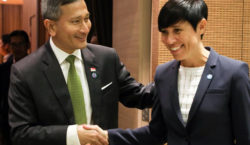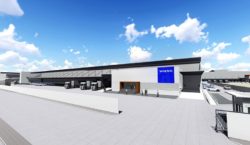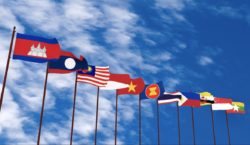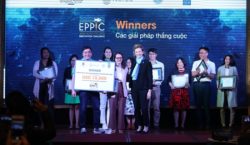The 640-million strong ASEAN population has gained prominence in recent years as a promising consumer market, with a thriving young middle-class (median age of 29) becoming more urban. Nielsen has projected that the Asean middle class – people with disposable income of US$16-US$100 per day – is projected to reach 400 million by 2020.
And Malaysia – particularly Greater Kuala Lumpur – with its confluence of culture as well as diverse demographics, is a microcosm of this thriving market, making it a prime target for global investors looking to set up gateways to own Asean expansion aspirations.
Malaysia ranked 22nd on the World Competitiveness list, a result of strong rebound in economic performance, especially in international trade. Malaysia is the only economy in Southeast Asia to register an improvement of two positions.
In the Doing Business 2018 report meanwhile, Malaysia set the frontier for reliability of supply and transparency of tariffs in getting electricity, as well as extent of disclosure in protecting minority investors. The report also lauded Malaysia as one of the few countries that instituted regulatory reform that resulted in the most improvement in the ease of doing business.
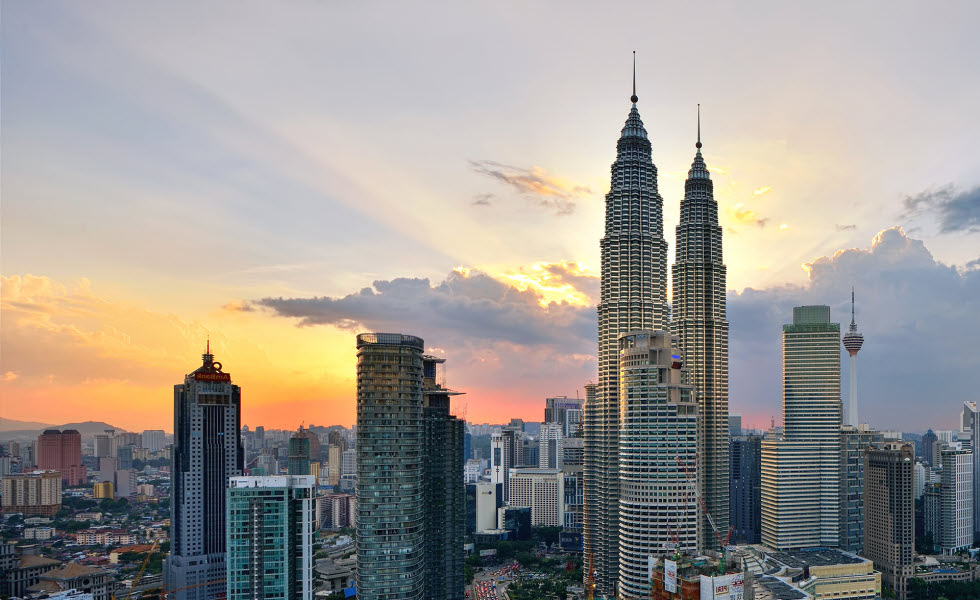
While negotiations for a Malaysia-European Union free trade agreement as well as Agreement on Partnership and Cooperation are currently underway, Denmark and Malaysia inked an Investment Guarantee Agreement as far back as 1992.
Though many European investors are targeting this ripe consumer market in the technology services sector, Danish investors are putting their tech supremacy and production strengths in the retail manufacturing and food sectors.
Danish investors invested RM12.4 million and RM294.3 million in 2015 and 2016 respectively in manufacturing projects in Malaysia, including a new specialty fabrics manufacturing plant by Fibertex Personal Care to satisfy increasing demands from Asian middle-class consumers.
Another big Danish name in Kuala Lumpur is Novo Nordisk, the pharma giant best known for diabetes care medications and products. The company has continued to maintain its presence in Malaysia as its regional hub and clinical centre since moving to Kuala Lumpur from Singapore in 2010.
This has been bolstered by Greater Kuala Lumpur’s solid manufacturing base, where investors enjoy strong transport and infrastructure linkage to port, rail, and air connectivity to the rest of ASEAN.
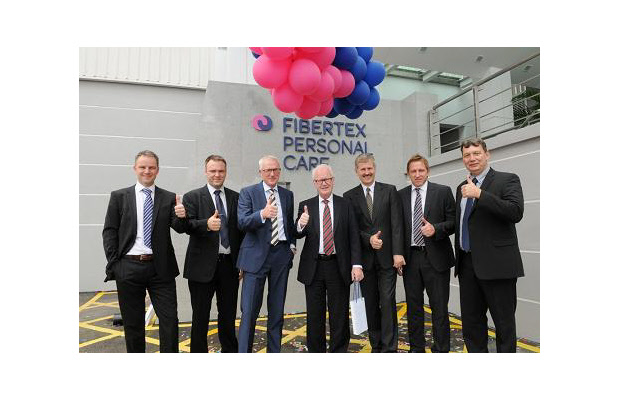
Implementing environment-friendly food sourcing methods to meet rising food demand
The demand for food is changing with the increase in middle-class expenditure, and has impacted the development within the food, agricultural and fishery sectors. The overall growth of the market is estimated at more than 3% annually and the import of foreign food products to Malaysia is around RM45 billion (USD$11 billion) per year.
In April 2016, the Danish aquaculture industry took a major step towards establishing a foothold in Malaysia, following the signing of a co-operation agreement between both nations to introduce Danish technology to the Malaysian fishing industry, agriculture and exploring the diary sector. For instance, pumps, filters, feeding tech and measuring equipment from Denmark are to assist Malaysia’s fishing industry become more environmentally-friendly and efficient.
“Global food needs are expected to double by 2030. That demands that we must produce more food with less environmental impact. So there is a need for green solutions that Danish companies can bring to the table. Danish companies can help Malaysia use less water, medicine and chemicals in production,” the then Danish Minister of Environment and Food Esben Lunde Larsen stated.
This stems from Denmark’s prime position to help Malaysia’s transition from traditional earth dams to modern technology that recycles water and improves conditions for fish and the environment. The Malaysian aquaculture sector raised fish worth 4.8 billion kroner (US$800 million) in 2015, and production is expected to triple by 2020.
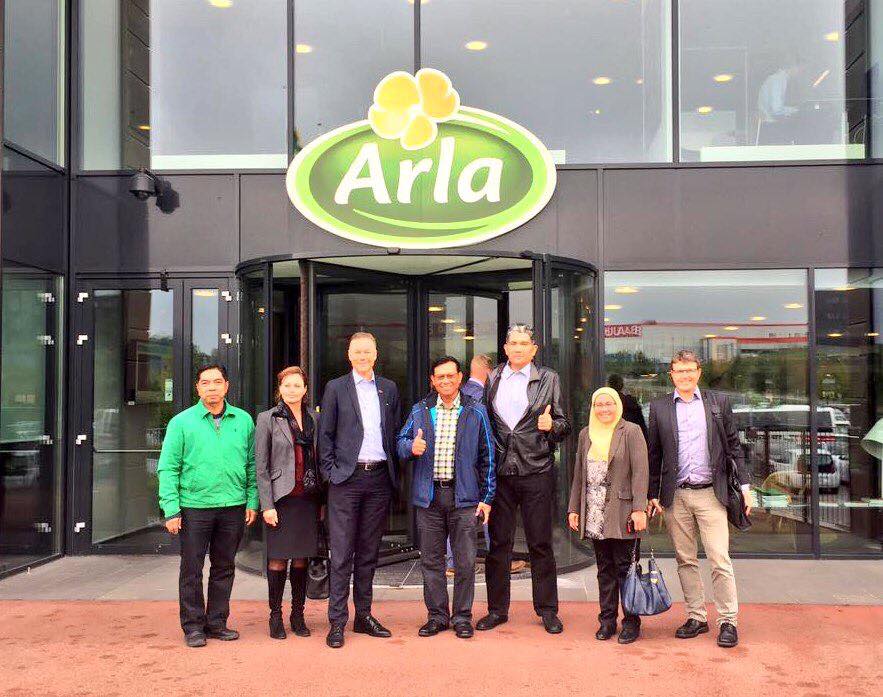
Another popular demand in Malaysia is dairy products- nearly all dairy products in Malaysia are imported. The demand for fresh milk, yoghurt and cheese continues to rise by 5-10% annually. As such, Malaysia encourages dairy investments as a means to build up the nation’s food security.
However, the Malaysian government aims to reduce Malaysia’s dependence on imported fresh milk by forming dairy clusters under anchor companies to produce milk on a large-scale basis. Anchor companies target to increase the average milk production per cow per location in their clusters to 15 litres per lactation per day from the current 10 to 11 litres.
As a result of Malaysian government outreach, European farmer-owned dairy cooperative Arla Foods – which is also the world’s largest manufacturer of organic products – has set up its regional office in Kuala Lumpur, which plans strategy for all of Arla Foods’ retail and food service activities in Asia.
In line with Kuala Lumpur’s role as an Asian hub, Arla Foods has set up their business unit in Kuala Lumpur- which operates Arla’s retail sales market in China in addition to setting the pace for dairy growth in the Southeast Asian market.
Powered by energy-efficiency
Danish technology applications are helping bolster Malaysian retail manufacturing and agriculture processes towards becoming more eco-friendly with increase productivity, and this can also be seen in Malaysia’s nascent renewable energy sector.
Currently Malaysian power generation is more than 90% dependent on fossil fuels. As part of its efforts to reduce carbon dioxide emissions 40% by 2020 and to diversify its electricity fuel mix while catering to increase consumer demand in the coming decades, Malaysia encourages investment in RE projects.
In 2016, a total of 111 projects in renewable energy with total investments of RM1.9 billion. Out of the total, RM233.8 million (US$60.1 million) were from foreign sources. Within the RE sector, green government buildings present an opportunity to showcase Danish technology.
In 2015, a partnership involving the Danish Climate Investment Fund took on a US$10 million project to help retrofit over 30 state government buildings. The project involves installing and financing energy efficient technologies and services, is the first showcase in the region for the new Danish solution.
Contributing to the scene of Malaysia’s green building aspirations is Danfoss Group hailing from Denmark. The company manufactures temperature control products and solutions. The Danish giant is also active in solar and wind power as well as district heating and cooling infrastructure that targets entire cities and urban communities
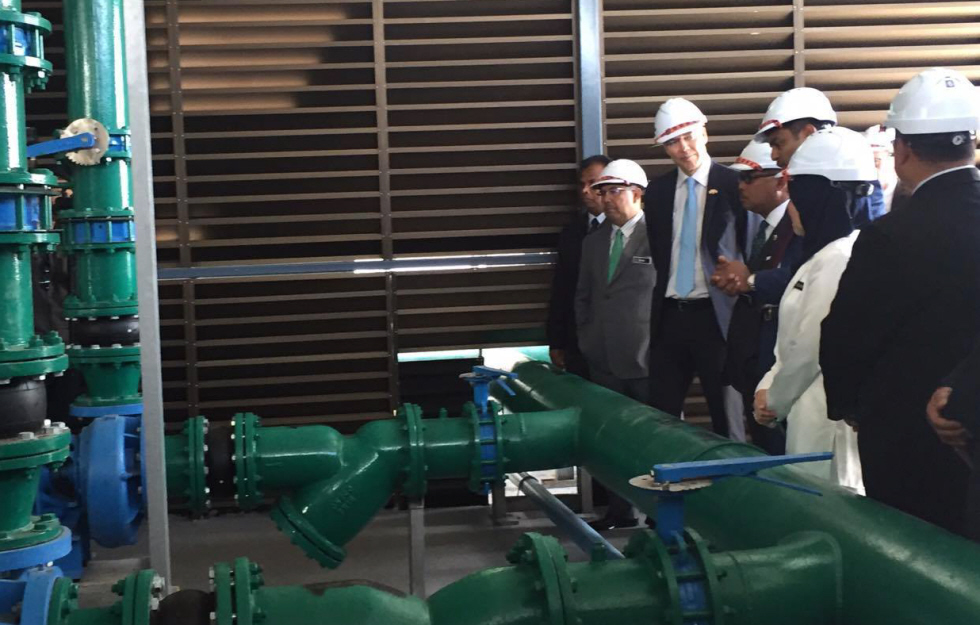
The group, which opened a new office in Greater Kuala Lumpur in 2007 after almost 20 years in Malaysia, is confident of maintaining a long-term presence in the country thanks to Malaysia’s highly-skilled youth and technical talents.
Ted Wen, President of Danfoss Asia Pacific Region, said: “The Malaysian government is putting tremendous efforts into pushing green building solutions. Therefore a lot of engineering talent will be required to support this development plan.”
Industry 4.0 and MedTech
While Danish companies have plied their tech expertise in many of these sectors, corporations that are well-versed in Industry 4.0 will find themselves in high demand in Malaysia, particularly in the area of Internet of Things, machine-to-machine learning, and Big Data.
In particular focus is Denmark’s world-renowned medical technology expertise, which it can apply to Malaysia’s dynamic and rapidly-growing smart healthcare sector. Malaysia, like many developing economies in Asia, is facing an increase in its aging population and life expectancies, with more healthcare expenditure and awareness.
More than 30 million people are living in Malaysia and by 2020 it is estimated that 10% of the population will be 60 years or older. The country is experiencing a growing demand for premium medical devices – including welfare technology and care products – which is paving the way for Malaysia to become a hub for healthcare tourism within Asia.
Malaysia’s ICT sector is internationally recognized for its low operation costs, accessibility to skilled labour (both local and foreign), good internet infrastructure, low energy costs and possibility of 100% foreign ownership for MSC (Multimedia Super Corridor) status companies.
Thus Denmark, with its global market leadership in hearing aids and smart devices in its medtech sector, can bring the innovations and solutions from its own aging population to Malaysia whilst using Malaysia’s healthcare tourism hub status as a springboard to the rest of the continent.


